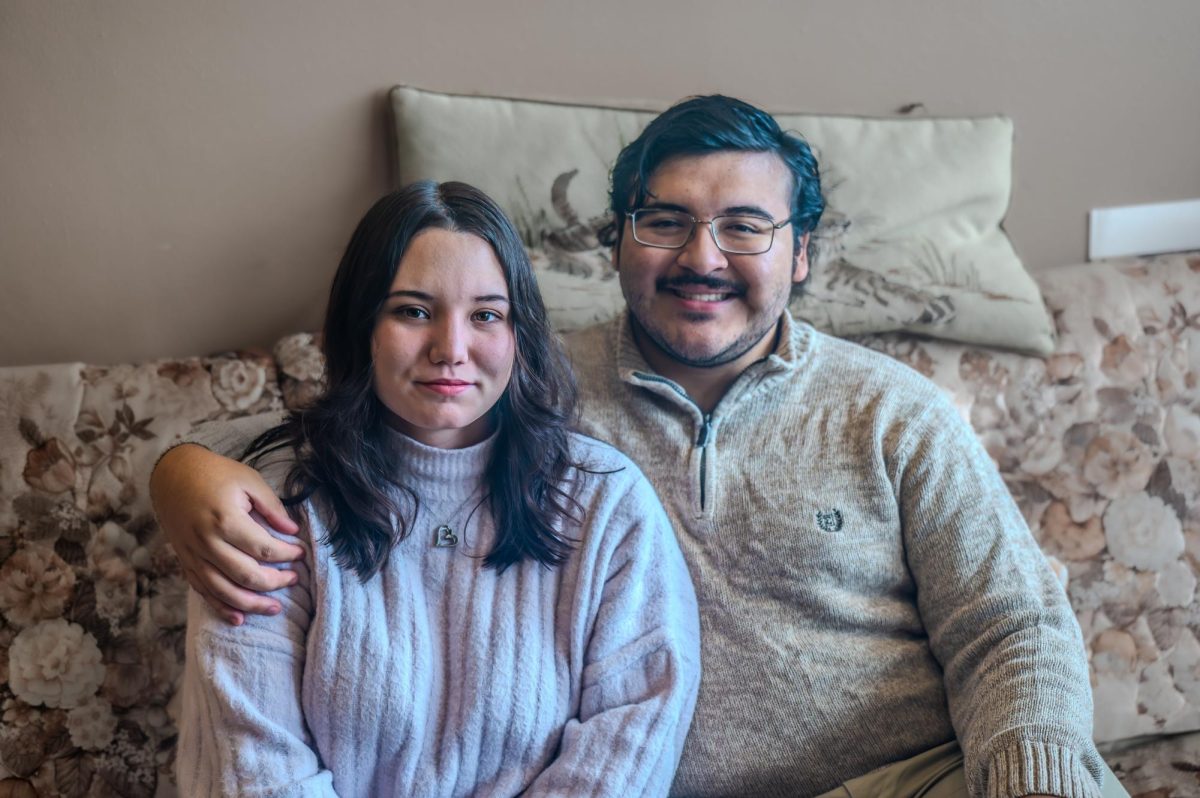Imagine that you could travel wherever you want in the United States, and all the expenses would be paid for. Here at Grinnell, this can be a reality. Through the Fischlowitz International Student Travel Fellowship, up to $5,000 is available for international students for this purpose, and it is made possible by the support of Grinnell alumni Teresa and Merle Fischlowitz.
“Merle Fischlowitz [’53] felt like [he] benefitted greatly from knowing students from around the world, but they would not have the opportunity to travel outside of Iowa,” said Karen Edwards, Director of International Student Affairs. “He wanted this money to help students see the U.S. in a broader scope.”
Applicants’ themes can be broad or narrow, and can range in a wide variety of ways. Past topics have included Hiking and Photography in National Parks, Jewish Life in the United States, Exploring Popular Ethnic Food Culture and From 13 Colonies to World Power.
One of the qualities found in successful application is thoroughness of the proposal.
“I think someone [should] really take the application process seriously and with a thoughtful plan,” Edwards said. “It should also show that the travel will have the potential to impact their world view.”
Creativity is another factor that the selection committee looks for.
“Even if the topic is one we’ve seen before, it can still fly if a new nuance is added to it,” Edwards said. “It isn’t meant to be very pragmatic or highly intellectual. It’s meant to be personal and meaningful.”
This year, the Fischlowitz fellowship recipient was Bo Wang ’16 from Zhengzhou, China.
Wang’s application displayed many qualities that the selection committee looked for. “I planned [my application] for a while, and started things early,” she said. “I [talked] to people and got a recommendation for my swim coach.”
The theme for her travels is College Sports in America. “The ultimate question is why do people put so much time and effort playing sports, watching it and being fans,” Wang said. “College sports [are] a big part of [American] culture. I’d say that something of that scale is something just in the United States. I went to Canada last year, and [college sports] is not even a thing [there] … it is unique to the United States, and I want to learn more about it.”
During fall break, Wang went to three college football games: one at the University of Southern California, one at Baylor University, and one at Louisiana State University (LSU). “[The one at LSU] was the killer one. Over 100,000 people were in the stadium, and it was intense to the last second,” she said. “The fans at LSU were so loud. I’ve never [heard] anyone as loud as they were. I can still feel the sound ringing in my head.”
By watching those football games, Wang found one of the answers to her ultimate question. “Sports is the reason they find … to celebrate,” she said. “Before the football game, people socialize, and it’s like a festival.”
Wang also saw the connections that sports can make. “I swam in a pool [at] UCLA, and newly met half a dozen people,” she said. “[Sports] is a trigger for conversation, and we all have this connection.”
In the future, she also plans to go to two more football games. “On Thanksgiving, I’m planning on going to [the games at] University of Wisconsin, Madison and the one [at] the University of Iowa,” Wang said.
There are several requirements applicants must adhere to. First, they must be a first, second or third year student from outside North America and must return to Grinnell for at least one academic year after their travels. Second, they have to complete their travels within the following academic school year after the application is completed.
While completing their travels, recipients must keep a journal of their experiences, which will be submitted at the end of the Fellowship. Additionally, all recipients are required to give an on-campus colloquium following their experience. The next round of applications is due Feb. 9, 2015.
Since 2001, applicants have also had to provide a theme tying their travels together. Instead of simply listing places that sound interesting, applicants must show a connection between those locations, what they want to do in each place and how they all link to the main topic.
In order to demonstrate this to the selection committee, applicants must write a proposed itinerary, an essay describing their learning goals and a budget proposal, among other documents. They also have to include a letter of recommendation from a faculty member.
Past recipients of the Fischlowitz Fellowship have applied the experience and skills they have gained to succeed in future endeavors. For instance, Wadzanai Motsi ’12, from Zimbabwe, used the fellowship to retrace the history of gospel music in the United States. “She ended up three years later applying for a Watson [Fellowship], and got it,” Edwards said. “She credits the sense of adventure and sense of independent travel that the Fischlowitz gave her.”
In the meantime, Wang plans to spread the word about this fellowship. “I already talked to a bunch of people about this scholarship, and I wish to help people learn of this awesome experience,” she said. “I would love to see more people apply for it.”



















































